What a gift to Labour. With just a few days to go before the general election, official figures have shown that Britain’s growth rate halved in the first three months of the year. And without the huge boost from lower oil prices to consumer spending and the transport sector, the economy could be heading back into recession.
Such is the lopsided, unequal character of Britain’s recovery that the Office for National Statistics put the spotlight on the hotel, restaurant and distribution sectors as among the fastest growing. A 1.2% increase in the last quarter compares with a 2.2% collapse across the entire construction industry and a meagre 0.1% increase in manufacturing since January.
What happened to the rip-roaring growth rates of 2013 and 2014? They have long gone. In fact, they started to peter out last summer and have faltered ever since.
Could it be that much of the boom was simply the return of the housing market as a source of economic activity?
One of the government’s only economic policies with serious money behind it was help to buy. Prices jumped in hotspot areas and transactions recovered. When the regulator stepped in and warned of another housing bubble and the Bank of England governor, Mark Carney, hinted that interest rate rises could arrive sooner rather than later, the property market cooled and the wind went out of Britain’s sails.
Ed Miliband cannot have failed to notice that nervous businesses are still refusing to invest. There will be critics who allege this anxiety can be blamed on the prospect of a Labour government. But that conclusion would miss the figures illustrating a reluctance to invest going back to the financial crash.
Firms are hoarding cash and handing it back to shareholders. Investment is a low priority for businesses large and small while government’s (across Europe) place a greater emphasis on austerity than growth.
That’s not going to change with George Osborne in charge. His belief that reducing government deficits instils confidence has been shown as flawed over the last five years. Sure, companies have employed more workers. But most of them are part-time and on short term contracts, or self employed sub-contractors who are paid the same or less than five years ago. Doubling up austerity over the next five years is not going to bring a smile to their faces. Or improve the growth rate.
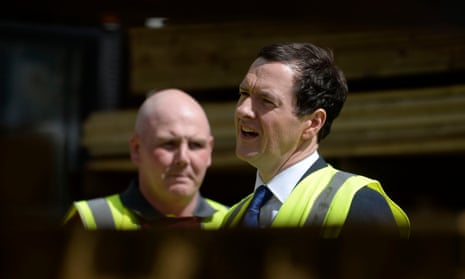
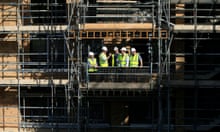

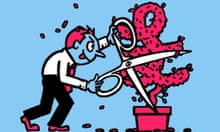

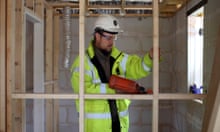

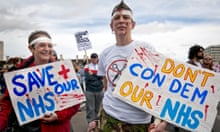



Comments (…)
Sign in or create your Guardian account to join the discussion